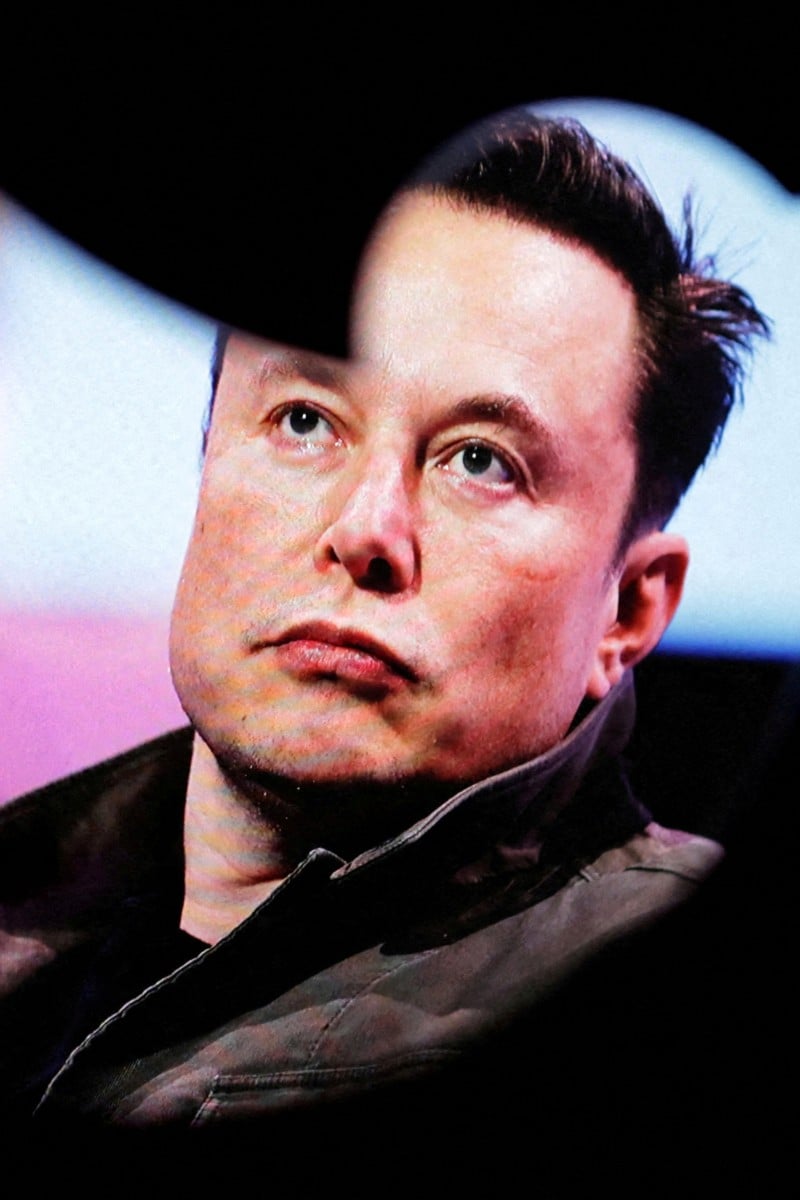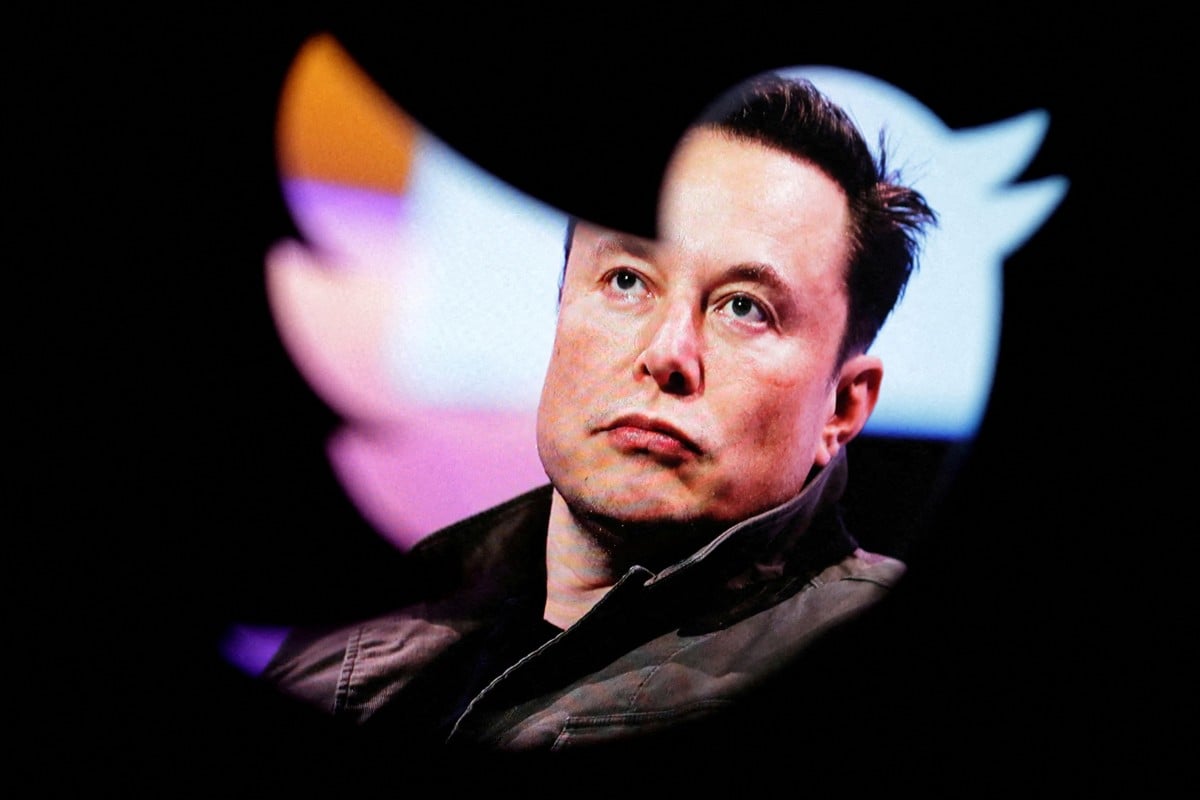
The Lens: Twitter owner Elon Musk announces he is stepping down as CEO, easing concerns for Tesla investors
- Musk has not yet revealed the name of his replacement, and many were worried about the amount of time he spent on the social media platform
- Each week, we choose a picture from the news and provide questions to help you dive deeper into the topic
 Elon Musk announced he has found a replacement CEO for Twitter after buying the platform for US$44 billion last year. Photo: Reuters
Elon Musk announced he has found a replacement CEO for Twitter after buying the platform for US$44 billion last year. Photo: Reuters Have some thoughts on this issue? Send us your response (no more than 300 words) by filling out this form or emailing [email protected] by May 17 at 11.59pm. We’ll publish the best response next week.
Observe and read
-
Do you recognise the man in the picture?
-
Based on the news snippet, what reasons could he have for stepping down from his job?
News snippet
Reuters
Twitter CEO Elon Musk said last Thursday that he had found a new chief executive officer (CEO) for the social media platform. “Excited to announce that I’ve a new CEO for X/Twitter. She will be starting in [around] 6 weeks!” Musk said in a tweet.
Musk has previously not named any prospective candidates, and it was unclear who he had named as his successor. However, Blind, an anonymous messaging app for tech employees, was ripe with speculation.
Former YouTube CEO Susan Wojcicki, former Yahoo CEO Marissa Mayer and a top executive at Musk’s brain-chip start-up Neuralink, Shivon Zilis, were among the names being discussed on Blind, according to a former employee who viewed the comments.
Musk said he would transition to “exec chair & CTO, overseeing product, software & sysops”.
The move is likely to ease concerns from investors in electric vehicle company Tesla, where he is also the CEO. Many have been worried about the time Musk has devoted to the social media platform.
“The boat anchor called Twitter is loosened from Musk’s ankle. Now he can get back to spending more time creating value at Tesla,” Craig Irwin, an analyst at Roth MKM, said.
In a Twitter poll started by Musk in December, 57.5 per cent of users voted for him to step down as CEO. Soon after buying the company, Musk, who calls himself a free-speech absolutist, quickly fired Twitter’s previous CEO Parag Agrawal and other senior leaders and laid off half its staff in November.
Research and discuss
-
Evaluate Elon Musk’s effectiveness as the head of Twitter.
-
Why do people want him to step down as CEO?
What’s happening with Twitter blue ticks?
Thoughts from last week
Chloe Kwok, Heep Yunn School
The UN aid chief hopes to have in-person meetings with the warring parties of Sudan to ensure that aid convoys can safely deliver relief supplies. The conflict between the army and the paramilitary Rapid Support Forces (RSF) has only intensified in recent weeks, leading to many deaths and injuries as people seek refuge from open warfare, even fleeing to neighbouring countries.
Aid is the core of humanitarian assistance in crises, given that it provides displaced individuals with access to essential supplies, including food and water. However, it can be difficult to deliver aid during wartime due to the instability of the country and aerial conflicts that could put volunteers in a dangerous position.
Providing humanitarian aid to countries affected by war or corruption can be contentious, as people worry about how the supplies and funds could be used. Sometimes, after a devastating natural disaster, some countries have received billions of dollars in donations, but corrupt officials siphon most of it into their pockets.
In situations where aid is at risk of being misused, we must devise strategies to ensure that it reaches those who need it most, such as working with local organisations with the power to distribute supplies effectively. By doing so, we can ensure that aid is used properly and that the people who need it most receive the support they require.
The Lens: UN pressures Sudan’s warring generals after aid looted